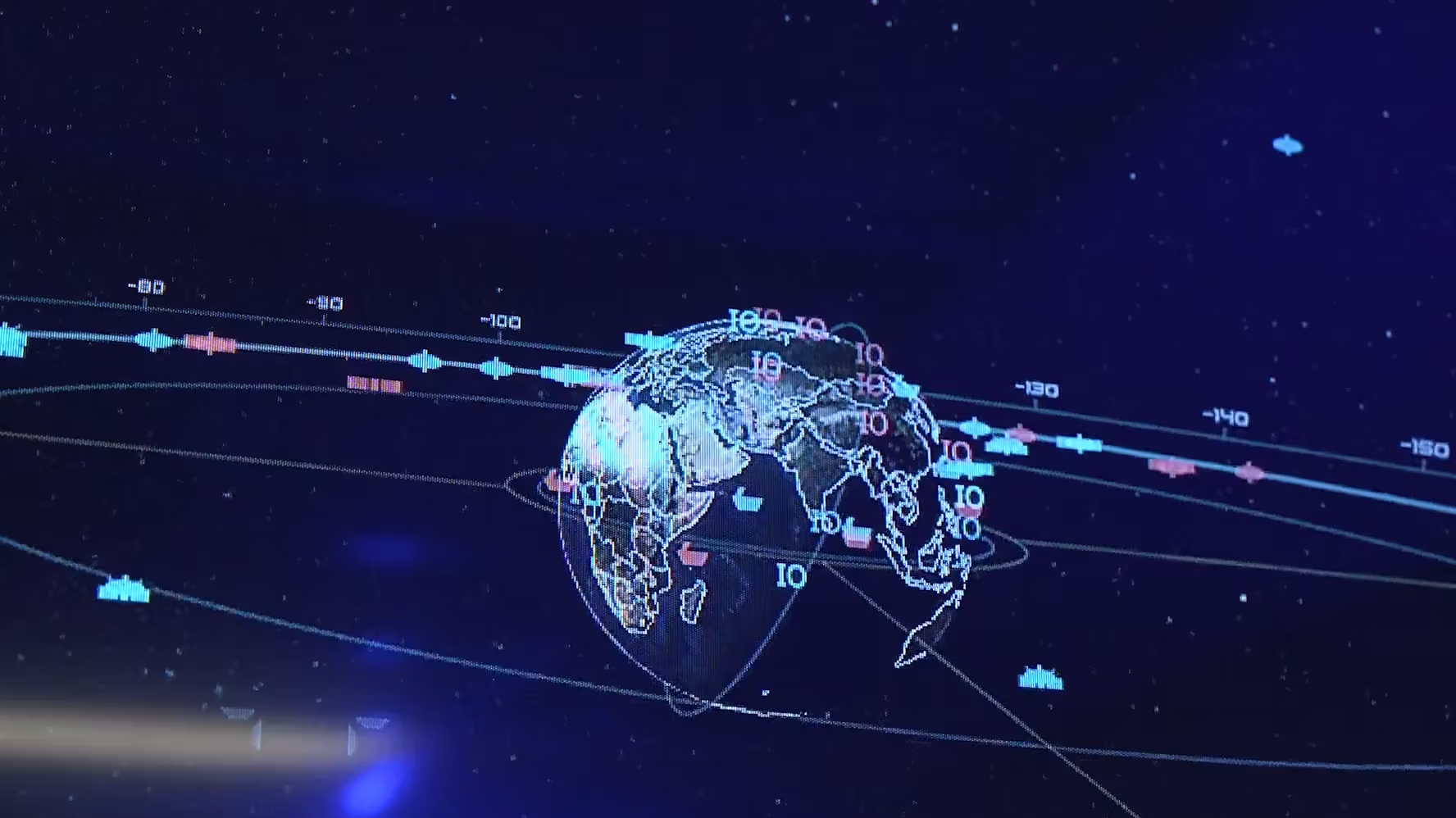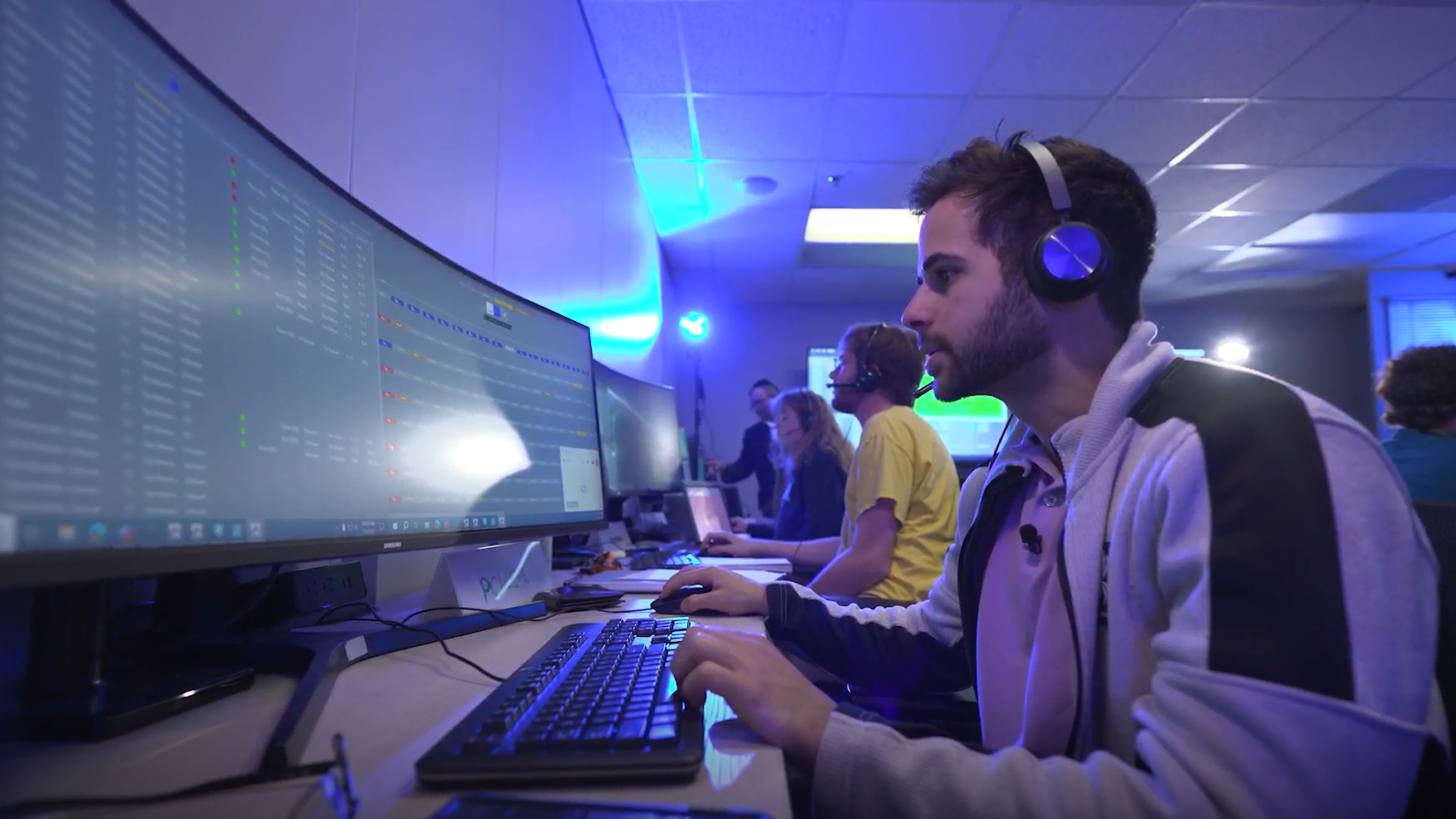
Aerospace recently hosted a group of commercial companies and researchers for a live demo of a digital wargame called Spoon Bender that simulates complex satellite conflict on orbit. The software is being adapted as a proving ground for AI systems and capabilities.
You can read more about Spoon Bender here, but the game essentially simulates friendly and enemy satellites in a complicated dance of strategic movement, attack and defense, jamming, and other factors.
While the game was designed to be played by two teams of seven (and a neutral "white cell"), it also deliberately presents more data and tactical options than are practical for the teams to exhaustively assess. This is to simulate the real world conditions expected in satellite constellation management and defense as the number of objects in orbit skyrockets.
You can see how a group of Aerospace interns played the game recently in this video:
This complexity means Spoon Bender could be a highly valuable platform for testing the capabilities of AI systems. Not just for satellite constellation management, but sorting of heterogeneous data and sources, fusion of multiple sensor sources, planning trajectory changes, and so on.
The event's attendees (who, along with some aspects of the software, remain confidential pending a wider release) participated in a game and spoke with the Aerospace AI developers adapting the game for play by AI systems. It's not a trivial alteration, but the potential benefits are clear.
Aerospace specializes in testing and validating cutting-edge tech for missions in space, and what tech is more cutting-edge today than AI? But rather than synthetic benchmarks like those used to measure the capabilities of tools like ChatGPT and Claude, Spoon Bender would test the ability of an AI system or agent to do something meant strictly for humans.

AI has many potential applications in Spoon Bender. It could act as an advisor to human players, performing analysis on the large quantity of data available; it could act as a computer player, making decisions and performing tasks start to finish; or perhaps it may even act as an entire AI team, working strategically and in coordination just like a group of human players. These and other possibilities are what Aerospace intends to help build and test.
Spoon Bender is under active development as a game and as an AI testing platform, and Aerospace is collaborating with commercial companies and researchers, like those who attended the preview, to ensure it is built with the needs of modern software and AI development in mind.
The platform will also be previewed at startup and venture capital conference TechCrunch Disrupt in San Francisco from October 27-29 — if you're attending, come by booth M5 to hear from the technical team.
